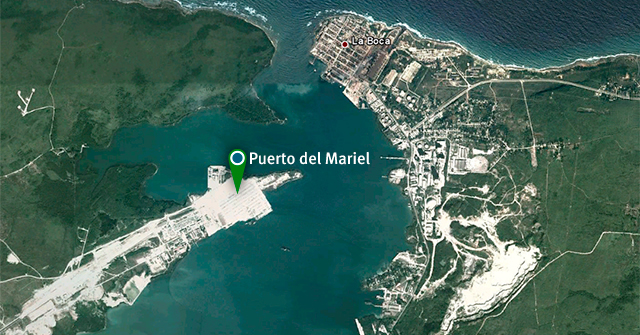
Cuba will have a new foreign-investment law
By Javier Ortiz
HAVANA – New times, new rules. Cuba is going to have a new law on foreign investment, said Foreign Minister Bruno Rodríguez Parrilla, interviewed recently in Tokyo by the Japanese network NHK.
The new law will take effect soon, Rodríguez told NHK World, without giving a specific date. It will grant a 10-year tax exemption to the profits earned by the investors, and will not tax personnel rolls, the minister said.
It is not the first time that a high Cuban official refers to the belated – and to some, much-hoped-for – new legislation that will regulate foreign investment in Cuba. In July 2012, Yamila Fernández, director of finance of the Ministry for Foreign Trade and Foreign Investment (MINCEX), announced that the law would be promulgated by the end of that year.
Almost 12 months later, the Cuban foreign minister did not give a precise date for the law’s enactment, but we could presume that it won’t be much later than the inauguration of the Special Development Zone at Mariel, scheduled for January 2014.
The Mariel project was backed by Law Decree No. 313, issued by the Council of Ministers in September 2013. The decree states that one of the objectives of the Zone will be “to attract foreign investment.” Article 57 specifies that companies that invest in Mariel will not have to pay taxes on profits for 10 years or taxes on sales for one year. Nor need they pay taxes for the use of manual labor, among other tax exemptions.
The Mariel Zone shapes up like the Alpha, the starting point of a change in the way foreign investment works in Cuba. It is a kind of a tax-free industrial zone. occupying a 465-square-kilometer tract of land, next to a port capable of hosting ships coming from Panama. It should become one of the most important ports in the Caribbean.
Between September and October of 2013, Cuba’s minister of Foreign Trade and Foreign Investment, Rodrigo Malmierca, visited several countries to introduce the Mariel Zone to possible investors. He went to Russia, Vietnam, China and nearby Mexico.
On Nov. 3, 2013, in a speech during the inauguration of the 21st International Fair of Havana, Malmierca gave some hints about the transformations described by Bruno Rodríguez in Japan. Malmierca said that “we are working with much dedication on the actualization of our policy on foreign investment, convinced that foreign capital must play an important role in our efforts.”
He added that “once this policy is approved, we hope to have a portfolio of projects by sectors that facilitate the identification of serious partners interested in associating themselves with Cuban companies for mutual benefit.”
The existing law on foreign investment dates back to 1995. Since then, using much caution and a selective policy toward foreign capital, Cuba has advanced in sectors as basic as tourism in its search for capital, technology and markets. The modalities allowed by that law are joint ventures, contracts of international economic association that include contract risk, and businesses with totally foreign capital.
“All this within a generalized tendency in the economic policy to return to centralization, which halted the process of aperture begun in the 1990s,” say Everleny and Vidal.
In 1992, the Cuban Constitution was reformed, allowing and recognizing forms of property other than state-owned property. In February 2013, Raúl Castro announced a new constitutional reform, to update and incorporate into the Cuban Magna Carta the spirit of the reforms that loom in the horizon.
The Cuban president said that “in accordance with the agreements of the Sixth Congress [of the Communist Party], it will be necessary to harmonize the postulates of the Constitution of the Republic with the changes associated with the gradual implementation of the Guidelines for the Economic and Social Policy of the Party and the Revolution.” But, until now, nothing has come out of that reform.
Approval of a new law to regulate foreign investment is not an explicitly declared objective in the Guidelines of the Sixth Congress of the Communist Party of Cuba, the chart for the economic transformations launched by the government of Raúl Castro in 2011.
Nevertheless, Point 98 of that document recommends “to perfect the regulations and procedures of evaluation, approval and instrumentation of the participation of foreign investment, facilitating the process at the same time. A rigorous control shall be maintained on compliance with the regulations, the procedures and commitments accepted by the foreign counterpart whenever any of the modalities of foreign investment is adopted.”
Foreign investment in Cuba has been characterized by analysts as a critical factor for the take-off of the Cuban economy, which this year is expected to grow less than 3 percent.
As Everleny and Vidal put it, “the need for foreign savings and international insertion will necessitate, sooner or later, a radical change in Cuba’s policy toward foreign investment within the current process of reform, in particular, changing the official view of it from a ‘complement of the national investment’ into a vital element of the efforts toward investment and growth.”
Javier Ortiz is journalist in the news department of Televisión Cubana.
Progreso Semanal/ Weekly authorizes the total or partial reproduction of the articles by our journalists, so long as source and author are identified.

